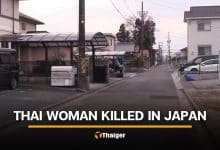G7 leaders convene in Hiroshima to discuss Russia sanctions, China strategy

G7 leaders have gathered in Hiroshima, Japan, to discuss tighter sanctions against Russia and protective measures against China’s “economic coercion”. Japanese Prime Minister Fumio Kishida is hosting the summit in a city marked by its history of nuclear destruction. Over the course of three days, leaders, including US President Joe Biden, will work on presenting a united front on issues concerning Russia, China, and other global matters.
Although Biden’s Asia-Pacific diplomatic efforts faced setbacks due to a domestic budget dispute, the G7 summit will focus on Russia’s ongoing invasion of Ukraine. According to US National Security Advisor Jake Sullivan, discussions will revolve around the state of play on the battlefield and the tightening of sanctions against Russia. Official statistics indicate that the Russian economy contracted by 1.9% in the last quarter due to existing sanctions.
The G7 has already implemented price caps on Russian petroleum products, resulting in a 43% drop in revenues, as per International Energy Agency figures. Sullivan suggests that G7 leaders may explore closing loopholes that enable President Vladimir Putin to finance his military efforts.
In light of Putin’s threats to turn the conflict nuclear, G7 leaders are expected to visit the Hiroshima Peace Memorial Park. Prime Minister Kishida hopes to use the summit to encourage transparency and reductions in nuclear stockpiles. However, with tensions rising between nuclear powers such as Russia, North Korea, and China, expectations for a significant breakthrough are limited.
The summit will also address concerns about China’s economic coercion, with G7 leaders seeking to protect their economies from potential blackmail by diversifying supply chains and markets. The White House’s Sullivan anticipates that leaders will condemn China’s economic coercion and work on bridging transatlantic differences regarding engagement with China.
While the US has taken a more aggressive approach towards China, European policymakers are keen to ensure that “de-risking” does not sever ties with one of the world’s largest markets. “This G7 is not an anti-Chinese G7,” said an adviser to French President Emmanuel Macron, adding that they are ready to cooperate with China under the condition of mutual negotiation.
Japan, as the host country, is also eager to connect with developing nations that have been courted by Chinese investment, inviting leaders from India, Brazil, and Indonesia to Hiroshima. Meanwhile, China’s growing economic and diplomatic influence will be showcased in Xi’an, where President Xi Jinping will host the leaders of five Central Asian countries, which were once considered to be within Moscow’s sphere of influence but are now increasingly drawn to Beijing.
Latest Thailand News
Follow The Thaiger on Google News:


























